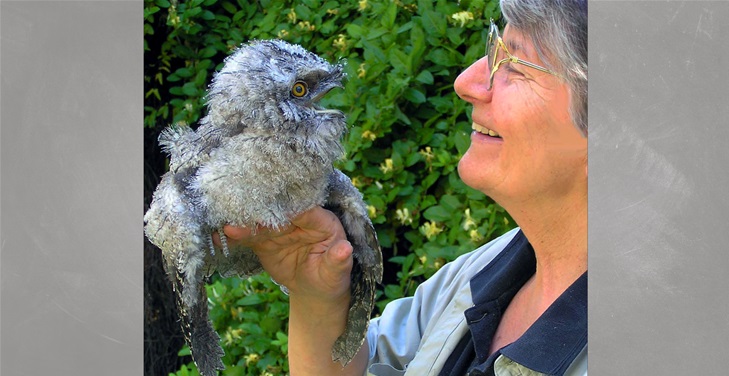KZ: Hi Gisela! Did you study any subjects or courses, take part in any activities or have any hobbies as a child that gave you skills you use in your work?
G: We had biology and environmental studies at school and had many field excursions. I was also in an organisation similar to the Girl Guides and learned how to survive in the wild, how to pitch a tent, what you need to watch (risks), how to get dressed in the bush and the tools we need. We were also told how to survive when we have no tools, no tents, no food, no water. Amazingly, I never forgot what I learned at school and in this bush club or its outings. This has been very useful knowledge indeed and makes me feel free and comfortable in the bush and even in the jungles of South East Asia and South America.
KZ: What experience did you need in order to work as a field biologist?
G: It is important to know what animals one is likely to encounter and how to behave in their presence. When you come face to face with a wild boar, what do you do? How do you save yourself if it is a rhino or a troop of strong primates (such as baboons in Africa or macaques in South East Asia)? All such chance encounters can be dangerous but rather harmless if one knows what to do in advance and one keeps calm and knows the wind direction. The real dangers in the bush are always the little creatures – from irritating leeches to biting insects and ticks and snakes and watching plants with poisonous barbs… I am happy to report that I have never been bitten or attacked by anything, except the occasional leech bite or tick but they were quickly discovered and removed.
KZ: What are the worst parts of your job?
G: Having to get up at 5:00am in the dark in winter on the New England Tableland when the temperature was below freezing and I had to be in the field when the birds first started their activities. Also having to carry so much equipment – camcorder and camera, and audio equipment for playing sounds back. I needed recorded information so one can then look at it again on a computer. Everything else while being out in the field is pure joy.
KZ: Can you share an interesting behind the scenes facts about your job?
G: Many facts I discovered by accident; they were not planned but they taught me respect for birds. They birds are more clever than most people think. In one private activity, I planted garlic in the garden and one magpie came in and followed me, walking behind me on the garden bed. As soon as I had planted a garlic in the ground, the magpie behind me pulled it out again and by the end of my efforts, all garlic plants had been thrown about but were no longer in the garden bed. Instead of chasing the magpie away I asked, why would the bird do that? I thought and began to realized that garlic repels earth worms, which is something the magpies like to feed on. Therefore, I did not try to replant the garlic but showed the magpie that I was putting the plants in a pot and left the garden bed alone. The magpie was happy with that solution and never pulled up another plant from the pot. I am sure that the bird thought I had to be taught a lesson. Another story that I have told often is the destruction of my hide by magpies. They seemed to know that I was going to hide in it and they ripped the entire hide apart. They seemed to be very cross with me. However, they allowed me to sit on a chair out in the open and watch them right in the middle of their territory.
KZ: What would K-Zoners be surprised to learn about you?
G: I have many hobbies but far too little time to pursue them. I have a skipper’s license and greatly enjoy being on the water in my boat. I play the French Horn (but no longer very well because I don’t practise enough). I love carving and wood turning to make lovely objects from hardwood debris in the bush and, when time permits, I display and sell these at exhibitions.
KZ: What would you say to K-Zoners who want to work in a similar role?
G: There is plenty you can do! Join a bushwalking or bird watching club, or clubs that go bush for weekends. If you live near mountains, join groups that do mountain climbing or caving and have someone who knows a bit about the area and the wildlife. If you can’t get to any of these exciting activities, you can do things from home. There are lots of things you can do in your backyard. Ask what plants, water or shrubs certain species need. You can start little projects. For instance, you can help build a little pond to encourage frogs to have a habitat in your garden. Once you have a habitat, insects will come to it and birds can find food. For birds, get a bird bath, and many different birds will come to it, and then you can find out which species they are and where and how they live. Sometimes you can help birds when there is a drought; they may not find enough food and would starve without help. By planting different native plants, you can directly help birds because you give them an extra food supply and something they will gratefully accept. They also add colour and drama to your garden.
Want to read more of our interview with Gisela Kaplan? Grab the June issue of K-Zone, on sale now!










Gary